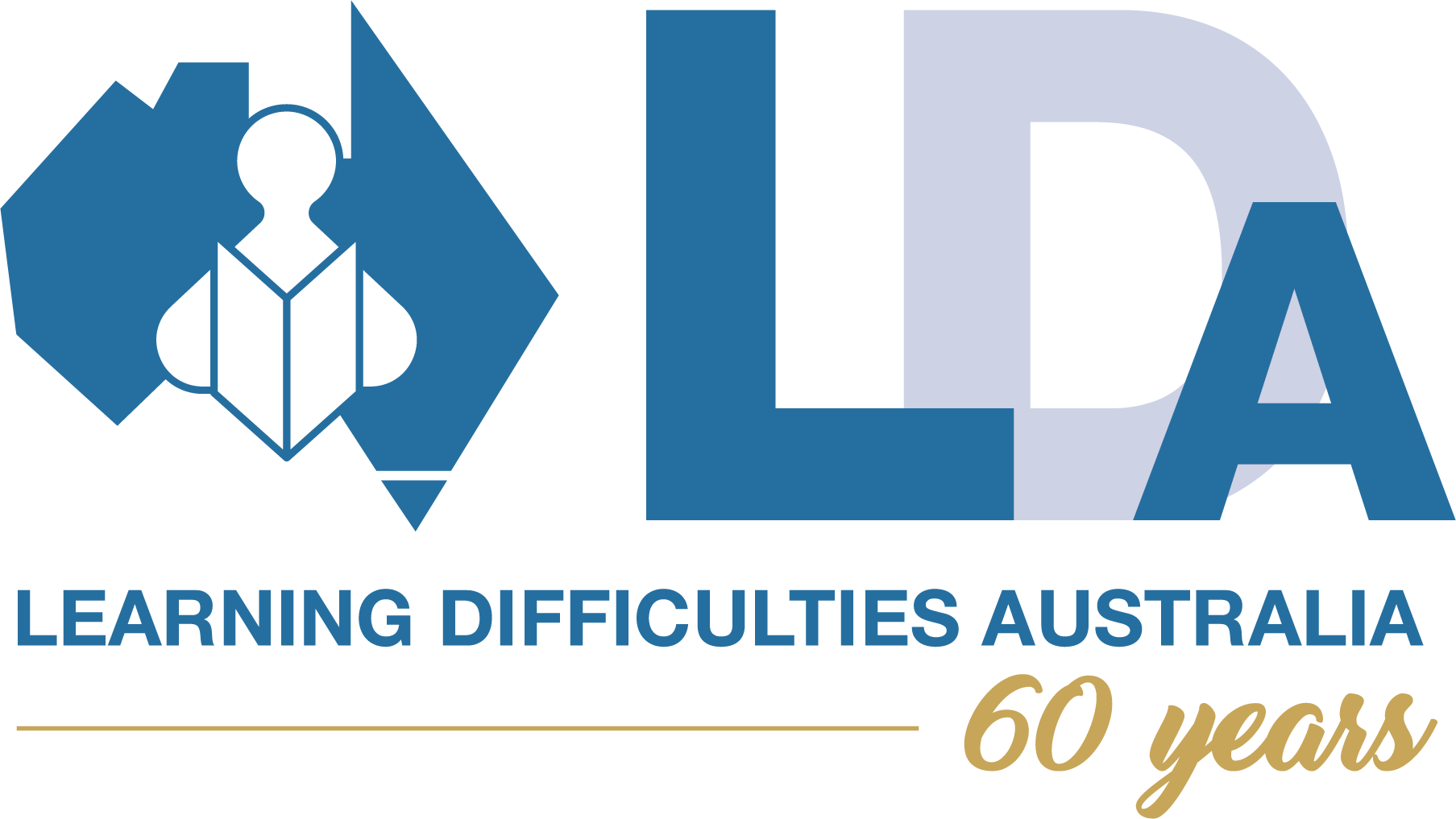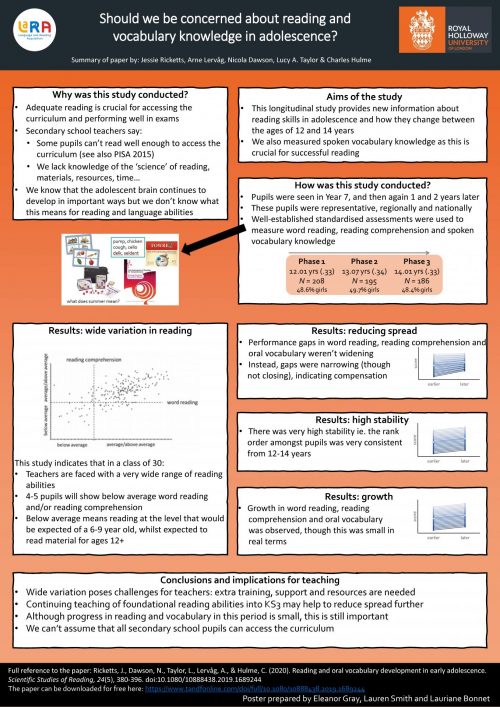International assessments show that 20% of adolescents cannot read simple texts with understanding. Despite this, research has focused on early reading in childhood and skilled reading in adulthood, neglecting reading development during adolescence. We report a longitudinal study assessing reading and vocabulary development at 12, 13 and 14 years in a sample of 210 adolescents who were unselected for ability. Word reading accuracy, word reading fluency, reading comprehension, receptive vocabulary and expressive vocabulary were assessed using standardized assessments. Latent variable models showed consistent rank order amongst individuals (high stability), significant progress over time, and evidence that achievement gaps between the least and most able adolescents were narrowing. Oral vocabulary knowledge and reading comprehension were best conceptualized as indices of a common language construct. Low levels of reading proficiency were also observed in a substantial proportion of this sample, underlining the importance of providing ongoing reading and language support during adolescence.
Ricketts, J., Lervåg, A., Dawson, N., Taylor, L., & Hulme, C. (2020). Reading and Oral Vocabulary Development in Early Adolescence. Scientific Studies of Reading, 24(5), 380–396. https://doi.org/10.1080/10888438.2019.1689244

